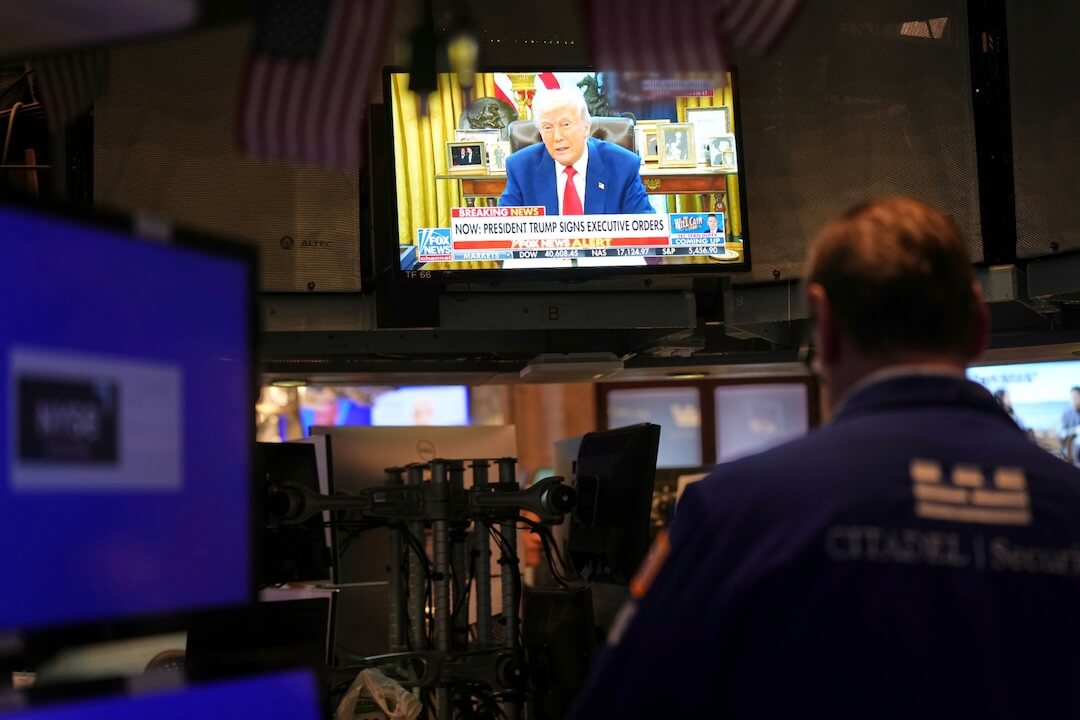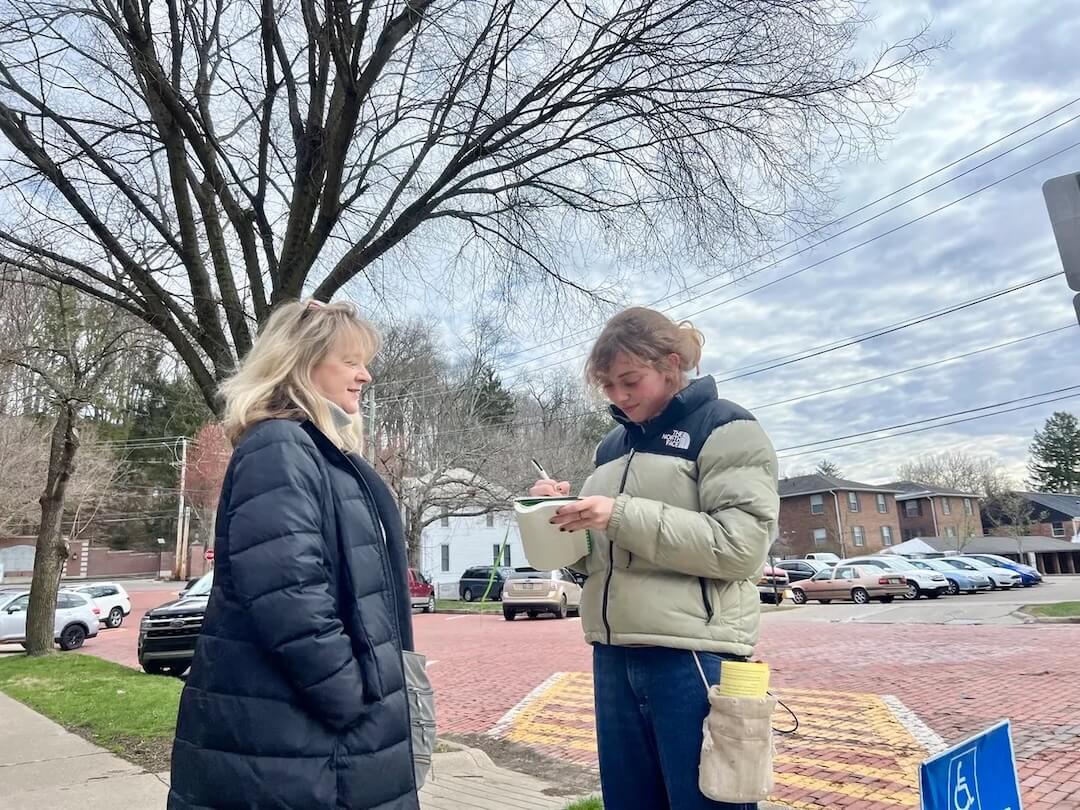
Harris Faulkner, now an anchor for “Outnumbered” and “Fox Report Weekend,” picked between jobs in different markets based on the kind of experience she might get there.
When Harris Faulkner picked up the phone Tuesday morning, she was in her office, getting ready for the day ahead.
It would be a big one. The Supreme Court was hearing oral arguments on same-sex marriage. Baltimore was reeling from riots that took place the previous day. President Barack Obama was planning to address the media in the White House Rose Garden with Japan Prime Minister Shinzo Abe.
And it was also an important day for Faulkner, who was celebrating the one-year anniversary of “Outnumbered,” the daytime panel show she anchors that pits four female hosts against “one lucky guy” on the issues of the day. Combined with her duties as an anchor for “Fox Report Weekend,” Faulkner’s work on the show adds up to a six-day work week.
But she says that workload is comparable to the earlier days in her career, which took her from market to market until she landed on national television. She talked to Poynter about some of the lessons she learned from that journey, including the importance of finding a market with interesting weather, strategies for dealing with online harassment and the state of diversity in the broadcast news industry. The questions and answers have been lightly edited for clarity.
You worked at a few markets before you made your way to national television. What did you take away from that progression?
Faulkner: I started out in Greenville, North Carolina at a small station, WNCT, and I’ve always kind of been blessed with good leadership. Our news director at the time was Roy Hardy, and we’ve since lost him. But he was just a terrific man. And from my first day, he said, “Look. You’re coming into a situation with no experience,” which was true, because I had interned at a station in L.A., but I’d never done any reporting. He said, “We are a small market, but we’re very competitive. We are near five to six military installations. He said, “We get hurricanes. We get tornadoes. You’re going to get a breadth of experience. And I only ask one thing of you every day: Be on time and be present. Own your moment.” And I’ll tell you, those words have been with me ever since.
What do you think took you from relative obscurity to prominence?
Faulkner: We recently observed the 20-year mark since the attack on the Alfred P. Murrah federal building in Oklahoma City. And in that retrospective that we did on “Fox Report” last Sunday night, there was video of me from back then. And I’m standing with a grandmother who lost two little ones in that daycare center. Two of those 19 children who perished that day when that building exploded. And I gotta tell you, looking back on that, if there’s any prominence that I’ve gained in my career, it’s because people have been so gracious to open up to me in the most difficult times and let me tell their stories.
A lot of journalists try to tell important stories, but they don’t wind up on the national news. What do you think has set you apart that others could learn from?
Faulkner: It’s timing, some of it. It’s perseverance — I’m a girl who doesn’t have a lot of quit in her — but I think one thing, overall, has really helped me, and that is the ability to be in the moment and to tell a story. To young journalists, I would say this: It’s not about getting your script to be perfect. Writing in short sentences is very important because you have to be a good communicator. But when you show up to a scene, whether it’s a crime scene or a fire, or whatever’s happening — for those young journalists, close your mouth. And listen. A lot of times we show up to a scene, and the photographer’s getting his camera out of the back of the van and we’re getting ready to go. And there’s one thing I always say to that photographer: Turn on your mic so we can grab this natural sound. I’m not going to talk. Let’s just be in the moment for about 60 seconds.
What did you look for when deciding which markets to move to? Was size a big factor?
Faulkner: The prominence of the market I guess is important to some people. For me, it was less about the number and more about the opportunities that might open up in that market. One of the questions I wanted to know about that next job was, what’s your weather like? I am into the weather! I learned from that first news director that some things unite all of us. Can you name a state in the United States that doesn’t get some interesting weather every now and then? No! So wherever you go, you’re going to need that experience. And I look at it this way: My life is an ongoing classroom…so I would say, figure out what it is you want to learn in your classroom every day and then pick a market that you think might help you learn.
How has being a woman of color in an industry that’s still very white informed your experience as a journalist?
Faulkner: I think what you’re getting at there is just dealing with the lack of diversity that we still see across the board, particularly at the national level — not so much at the local level. In the markets that I’ve worked and where I’ve visited, I think it’s much more representative at that level of what your community looks like.
Now, part of that is because your community is so close to you. You know, your news directors and general managers go to the supermarket with all the viewers. As you fan out, you get to the national level, there’s a little bit more insular existence for news management, and for management in general.
So then, growing your diversity becomes something that is more about your individual vision of leadership. As leadership decides that they want to throw every asset at the screen, they will find, “Wow, this really works.” And since the goal, at the end of the day, when you’re leading a corporation, is to make money, you might want to give diversity a try. Because it does pay to have as many voices on the screen as possible. Fox News has figured this out, and it’s a beautiful thing. I mean, when you look across the board on primetime, you see women. Megyn Kelly. Greta van Susteren. You see me, Harris Faulkner. You see a woman of color.
Do you have any advice for journalists of color who are trying to take the same path you did?
Faulkner: Don’t make it about it what you look like, or where you come from, or your skin color. Make it about how great you can be when you’re given an opportunity. It’s more than just owning your moment, which is a big thing, as you know, for me. It’s knowing that that moment is bigger than you are. It’s not just about you. Others are watching, and they’re looking for inspiration.
A lot of journalists are dealing with harassment and abuse right now, especially on social media. What has your experience been with this and what have you learned?
Faulkner: Being in the public eye, there are going to be people who adore you, who watch you as fans. There are going to people who really don’t like you, who are not very happy in their own lives and want to express everything to you in a negative way. And then there are going to be people who are in a separate category from everybody, and those are people you have to watch out for.
I had a stalker right after I got to Kansas City. He stalked me for two years. He was found on my property, he harassed me, broke into my home, it was awful. And then the case was adjudicated and he served a penalty and was monitored for several years after that, by local law enforcement. And when that passed, as we reached the year 2000, I was kind of on my own, had moved to Minnesota, I was contacted again. I notified the local police department, they had to gear up again to try to protect me.
And through it all, I’ve learned that things happen, and there are people out there who are unhealthy, to themselves and to others. When you see something that makes you uncomfortable, in your gut, you know it’s not right, you have to tell somebody. Don’t wait like I did, trying to manage the situation because you think you can.
One of the programs you’re on is more analytical and discussion-focused and one is focused on the five Ws and the H. How do you reconcile those two roles?
Faulkner: As you mentioned, the five Ws and the H are happening on “Fox Report,” and we also do a lot of politics, because that’s making news right now. The difference on “Outnumbered,” as I’ve pointed out, is we have that (other) muscle to flex, to do something different, to have fun, to dig deep. I’m a mom of two, my girls are five and eight — second grade and kindergarten. So the times that you hear me chime in from my point of view — outside the news — are when we get to those topics that call on me as a mom, as a wife, as somebody who’s balancing a lot of different balls in the air. And I don’t find it difficult to do a mix of the two, because I really understand the responsibility, the accountability, of getting the news right.
Six days is a lot of time to be at work every week. How do you manage your work-life balance?
Faulkner: You have to have a good team at home. It’s very important. And you have to communicate to them what your needs are. I married a very very great guy. I call him my forever boyfriend, Tony. From the time I met Tony, he’s made me better. And he reminds me: You can only live in the moment that you’re in. So what do you need to make this moment successful? Communicate with me.
But I also communicate to the grandmas. Trust me, when the grandmas say they’ll watch the kids for a couple hours so we can have a hiking date, you say yes. Not just for your marriage and for yourself, but because it’s good for the kids to see mom and dad together and happy. It’s also good for them to check in with other family and have it reinforced that they support your mother and what she’s doing.







Comments